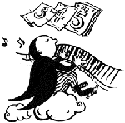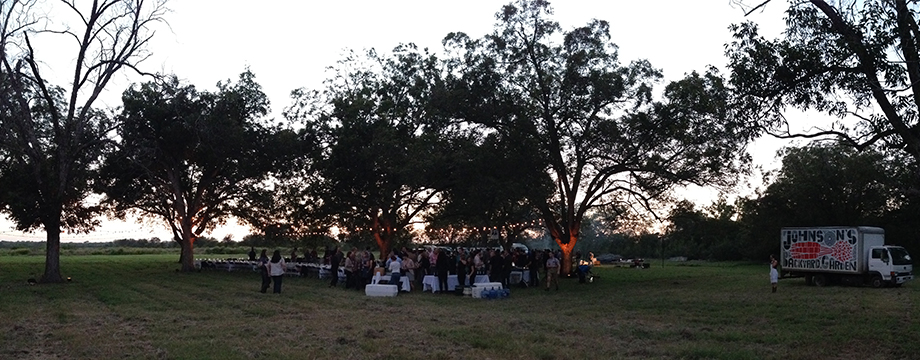 In today’s link dump I linked to a Yahoo news story which states that a July poll showed over 50% of Americans still believe that Iraq had weapons of mass destruction prior to the war. That’s not good, folks. We’re not paying attention to the world around us, and I’m not sure why.
In today’s link dump I linked to a Yahoo news story which states that a July poll showed over 50% of Americans still believe that Iraq had weapons of mass destruction prior to the war. That’s not good, folks. We’re not paying attention to the world around us, and I’m not sure why.
Anyhow, this isn’t a rant about our political climate or stupid people. No, I’m just using that as an illustration of the lengths to which people will allow themselves to become deluded–as an example of an absence of knowledge.
Information we have yet to learn we are said to be “ignorant of;” a term which carries with it no shame. Lack of information is not a bad thing, as it is easily remedied. Conversely, when you have specific information readily available but choose to ignore it you’re said to be “stupid.” I’m sure you’ve heard the saying “fool me once shame on you; fool me twice shame on me.”
But what about information we know so well we forget we know it? Is that even possible? The Japanese aphorism, “Mushin no Kokoro,” will show us that not only is that philosophical mind-set possible, but that we should aspire to achieve it. This Zen-derived saying means “the detached mind,” and many martial artists use it as an affirmation, or a mind-set to strive to attain.
I’m sure you’ve heard athletes say they were “in the zone” after completing some display of athletic prowess. “Mushin no Kokoro” expresses the same idea; albeit with a little more panache. After spending copious amounts of time practicing the same activity, at some point you’ll reach a level of expertise where body movements or intellectual processes become second nature, and you respond instinctually instead of with an intellectualized response.

Robin Reilly describes “Mushin no Kokoro” as “a mind empty of all thought or emotion, the presence of which interferes with the body’s ability to act automatically in the face of an attack”¦the detached mind does not stop at any one point”¦[i]t is free to move about, allowing a flexibility to respond to any situation.”
While a samurai would use this Zen-saying to help him overcome the fear of death in the midst of battle, we can also apply it to our modern, everyday life.
Now, I’m not talking about some mystical, new-agey bullshit here. I’m simply advocating that you study and practice whatever activity you choose to engage in relentlessly, to the point that it becomes second nature”¦instinctual, if you will. When you reach a high level of proficiency in any activity you can then push all doubts, fears, and general chatter, out of your mind and let your body complete the task without the help of your nagging, bothersome consciousness.
I’m sure you’ve noticed that you type faster when you don’t think about it, or when you’re by yourself. Know why? Mushin no Kokoro. You aren’t thinking about typing while you’re doing it, and therefore you don’t have your mind mucking about with your fingers. When your level of proficiency requires that you consciously think about the keys your speed slows down, but when you forget the keys even exist, well, then you can get some serious typing done, my friend.
You ever met someone who had a famous quote for every occasion, and could seemingly spout them off without as much as a thought? Mushin no Kokoro. How about someone who would figure complex mathematical equations in their head almost instantaneously, but would struggle if you asked them to show their work? Mushin no Kokoro. How about the musician who always, always hit the right keys, strummed the right string, or hit the right note? Yep, you got it”¦Mushin no Kokoro.
Practice whatever it is you do until you don’t even have to think about it anymore. Take pride in what you do, and learn every aspect of your chosen task available. But just know this: as your level of knowledge increases, so too will the realizations of how much you in fact do not know, or have yet to learn.
It’s kind of a double-edged sword. How do you deal with that sense of inadequacy?
Mushin no Kokoro.

I enjoyed the article. I think that one of the most important points is the last. We have distressing ability to lie to ourselves. On the Iraq feed it cuts both ways. People fool themselves by both not having a clue and by not realizing that they don’t have a clue. There is so much that we don’t know, yet still make declarations that it is scary, but also fascinating. We can make good decisions on limited information especially the more we train ourselves. I have often seen the emphsais placed on education or training, but I think that you have to also include experience.
For the translation of Mushin no Kokoro I like “The Unfettered Mind,” which is also a book by Takuan Soho. I loved this book.
I read Reilly’s book. He does a good job giving the standard view of ISKF karate, and unfortunately I think that this limits his understanding of his art. Limiting his scope might alos have been his purpose. Of course he has a book on amazon and I don’t so take my comments with a lot of salt.
Yeah. I recognized the limitations of Reilly’s definition as I was writing this, but his was the only book I had close at hand–and by that I mean the only book that was within reaching distance of the couch that I was lying on when I was writing.
I think I’m gonna reserve the paradox of gaining knowledge resulting in the realization of inadequacy to explore in greater detail in a later post. As it stands I have a sentence and a half discussing an idea about which I could probably write an article length paper.
“The Unfettered Mind” is a pretty cool definition. Even though “unfettered” and “detached” are basically synonyms, “unfettered” definitely has more of a poetical quality. Sounds more Zen-like to me.
You know, we’re perilously close to talking about “chi” right now. Not sure I like that about us.
On Chi, I wish I understood what they meant. I have been working with Ruby and some of the things that he talks about when he mentions Chi I am understanding a little better, although there are some things that I am just not sure about. Maybe as I learn more.
Another book on thinks would be “Blink.” I am starting to feel like his publicist.
I think that detached says removed to me, while unfettered makes me think free.
You’ll have to explain it to me. I have yet to either hear or read an explanation that didn’t make me roll my eyes.